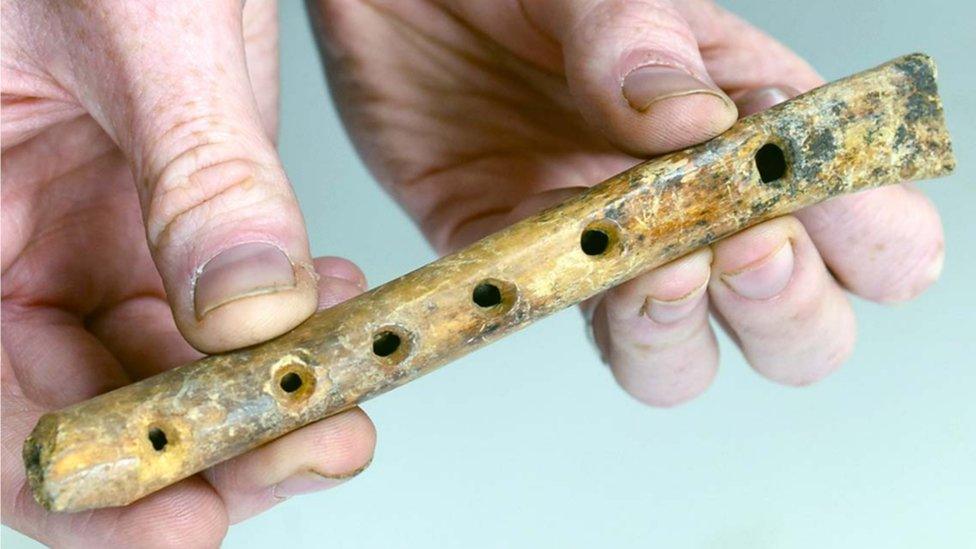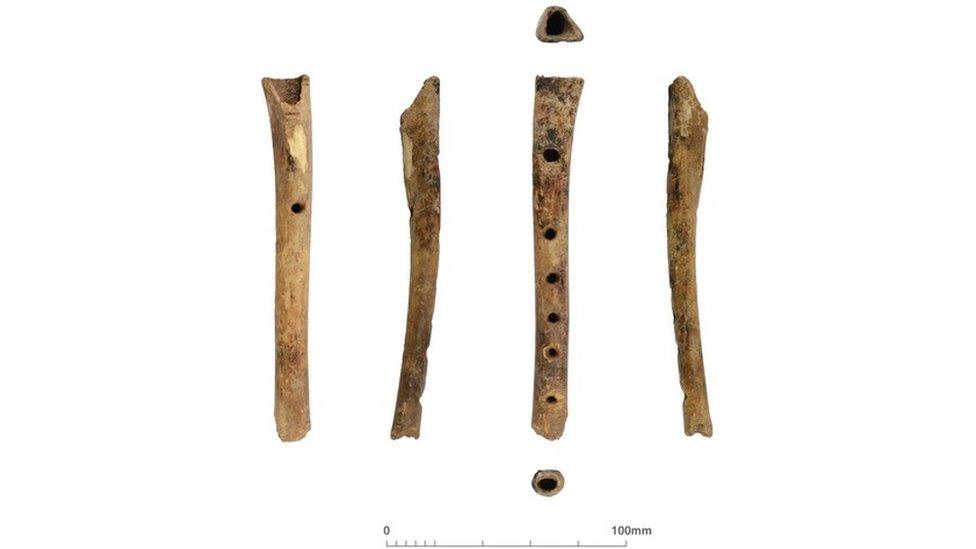'Remarkably well-preserved' bone flute unearthed in Kent
- Published

It is thought the 'fipple flute' was formed from the tibia of either a sheep or a goat
A rare flute made from bone has been unearthed at an archaeological site near Herne Bay.
Archaeologists were excavating the 61-hectare site, south of Hillborough, when they discovered the instrument, known as a 'fipple flute'.
It is believed to date back to the 13th-15th Century due to medieval pottery found nearby.
It is thought the flute was made from the tibia shaft of either a sheep or a goat.
Despite missing some form of mouthpiece, the "remarkably well-preserved" artefact is otherwise complete, according to Cotswold Archaeology.

The instrument has been carved with five fingerholes along the top and a thumbhole underneath
The instrument has been carved with five fingerholes along the top and a thumbhole underneath.
It was found in a pit which included a 'sunken-featured building' - a common feature of the later medieval landscape of north Kent which is often associated with activities such as bread-baking and brewing.
Research on the artefact and the wider excavation site is ongoing.

Follow BBC South East on Facebook, external, on Twitter, external, and on Instagram, external. Send your story ideas to southeasttoday@bbc.co.uk, external.